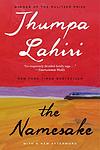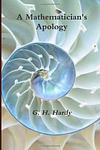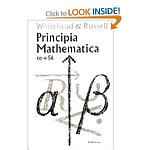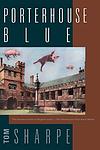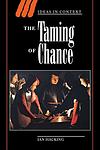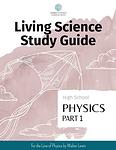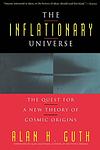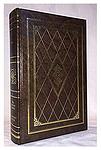The Greatest "Cambridge" Books of All Time
Click to learn how this list is calculated.
This list represents a comprehensive and trusted collection of the greatest books. Developed through a specialized algorithm, it brings together 284 'best of' book lists to form a definitive guide to the world's most acclaimed books. For those interested in how these books are chosen, additional details can be found on the rankings page.
Genres
Countries
Date Range
Reading Statistics
Click the button below to see how many of these books you've read!
Download
If you're interested in downloading this list as a CSV file for use in a spreadsheet application, you can easily do so by clicking the button below. Please note that to ensure a manageable file size and faster download, the CSV will include details for only the first 500 books.
Download-
1. The Double Helix: A Personal Account of the Discovery of the Structure of DNA by James D. Watson
This book is a personal account of the race to discover the structure of DNA, told from the perspective of one of the co-discoverers. It provides an insider's view of scientific research, the collaboration and competition, the dedication, the doubt, the exhilaration of discovery, and the often fraught relationship between science and the rest of life. The book also explores the personalities, quirks, and conflicts of the scientists involved in the groundbreaking discovery.
-
2. Principia Mathematica by Isaac Newton
This seminal work is a comprehensive exploration of classical physics, laying the groundwork for much of modern science. The author presents his three laws of motion and law of universal gravitation, effectively bridging the gap between the abstract world of mathematics and real-world phenomena. The book also delves into the principles of calculus, a mathematical discipline the author significantly developed. This work has had a profound influence on the scientific understanding of the physical universe.
-
3. The Namesake by Jhumpa Lahiri
The novel tells the story of Gogol Ganguli, a second-generation Indian-American, who struggles with his unique name and his dual cultural identity. Born to immigrant parents from Kolkata, India, Gogol is named after the famous Russian author, Nikolai Gogol, a decision that shapes his life in unexpected ways. As he grows up, he finds himself torn between his parents' traditional Indian values and his desire to fit into mainstream American society. This internal conflict is further complicated by his relationships with women of different cultural backgrounds. The book explores themes of identity, cultural assimilation, and the immigrant experience.
-
4. A Mathematician's Apology by G. H. Hardy
"A Mathematician's Apology" is a deeply personal reflection on the beauty and importance of pure mathematics. The author, a renowned mathematician, defends the pursuit of mathematics for its own sake, arguing it's a creative art form akin to poetry or painting. The book provides insight into the mind of a working mathematician and the aesthetic appeal of mathematics, while also discussing its practical utility and the author's own work on number theory and the theory of prime numbers.
-
5. The Principia Mathematica by Alfred North Whitehead, Bertrand Russell
The Principia Mathematica is a three-volume work on the foundations of mathematics, written with the goal of deriving all mathematical truths from a well-defined set of axioms and inference rules in symbolic logic. The authors aim to show that mathematics is a development of logic and avoid any hidden assumptions. The work covers topics like class theory, relation theory, and quantity theory, and it is known for its rigorous and meticulous approach.
-
6. Kane and Abel by Jeffrey Archer
"Kane and Abel" is a captivating saga that follows the lives of two men born on the same day on opposite sides of the world. One is born into a life of privilege and the other in extreme poverty. Despite their vastly different beginnings, their lives intertwine in a tale of ambition, rivalry, and revenge. Over the decades, they build successful lives, unaware of each other, until their paths cross, leading to a fierce battle that only one of them can win.
-
7. The Character Of Physical Law by Richard P. Feynman
"The Character of Physical Law" is a collection of lectures that explores the nature of the laws of physics. The book delves into the principles that govern the physical universe, discussing topics such as the relationship between mathematics and physics, the role of symmetry in physical laws, and the conservation principles that underpin the laws of nature. Through engaging and accessible language, the author provides insights into how physicists think about problems and develop theories, emphasizing the beauty and simplicity inherent in nature's laws. The work also reflects on the philosophical implications of scientific discoveries and the interconnectedness of various physical phenomena.
-
8. Case Histories by Kate Atkinson
"Case Histories" is a gripping mystery novel that follows the story of a private investigator who is hired to solve three seemingly unrelated cold cases that took place decades ago. As he delves deeper into the mysteries, he uncovers dark secrets and hidden connections between the cases. The narrative is a complex web of intrigue, suspense, and drama, filled with well-crafted characters and unexpected plot twists that keep the reader hooked till the end.
-
9. Love Story by Eric Segal
This novel is a poignant and tragic romance that captures the hearts of its readers through the story of two young individuals from vastly different backgrounds who fall deeply in love. The narrative explores the themes of love, loss, and the inevitable challenges that arise when worlds collide. Despite the objections from their families and the obstacles thrown in their path, the couple's commitment to each other is unwavering. Their journey together is both heartwarming and heart-wrenching, leaving an indelible mark on the reader through its exploration of the power and resilience of true love in the face of adversity.
-
10. Porterhouse Blue by Tom Sharpe
This satirical novel is set in the fictional Porterhouse College at Cambridge University, where tradition reigns supreme. The story unfolds with the death of the college's Master, leading to the appointment of Sir Godber Evans, a reform-minded new Master who aims to modernize the institution. This sparks a series of comedic and absurd events, highlighting the clash between the old guard's dedication to preserving tradition at all costs and the new Master's progressive ambitions. The narrative is rich with eccentric characters, from the conservative college staff to the mischievous students, all contributing to the ensuing chaos and humor that critiques the resistance to change within British academic institutions.
-
11. Family Pictures by Sue Miller
"Family Pictures" is a poignant narrative that delves into the complexities of family life, centering around a seemingly perfect family that is forever altered by the diagnosis of one of the children with autism. The story unfolds over decades, exploring the profound impact of the child's condition on each family member's life and relationships. As secrets and tensions surface, the novel examines themes of love, responsibility, and the enduring bonds of family amidst the challenges of raising a child with special needs. The narrative provides a deep and empathetic look at the sacrifices and joys inherent in family dynamics, and the ways in which personal crises can both fracture and fortify the connections between relatives.
-
12. The Taming of Chance by Ian Hacking
"The Taming of Chance" delves into the evolution of the concept of probability and its societal implications. The book takes the reader through the historical progression of probability and statistics, illustrating how they have shaped and been shaped by societal norms. The author highlights the profound impact of this mathematical concept on various aspects of life, including law, science, and philosophy, and how it has fundamentally changed our perception of the world.
-
13. The Bay Psalm Book by Stephen Daye
The book in question is one of the earliest volumes printed in British North America, known for being the first book of psalms to be translated into English in the New World. It was created by the Puritan leaders of the Massachusetts Bay Colony to provide a version of the Psalms that were more closely aligned with their theological beliefs and more literal to the Hebrew original than the psalm books being used in England at the time. This book not only reflects the religious convictions of the early settlers but also marks a significant milestone in the history of printing in America, as it was produced on the first printing press in the English colonies.
-
14. Science and the Modern World by Alfred North Whitehead
"Science and the Modern World" is a philosophical exploration of the impact of scientific advancement on contemporary society. The author examines the development of science and its historical influence, asserting that modern science has transformed our understanding of the world and ourselves. He explores the philosophical implications of scientific discoveries, discussing topics such as the nature of matter, time, space, and the relationship between mind and body. He also critiques materialistic and mechanistic views of the universe, advocating for a holistic and organic worldview.
-
15. The Masters In Sequence by C. P. Snow
"The Masters In Sequence" is a thought-provoking novel that delves into the complex dynamics of power, politics, and academia. Set in a prestigious university, the story follows a group of influential professors as they navigate the intricacies of intellectual rivalry, personal ambition, and societal change. With a keen eye for detail and a deep understanding of human nature, the author masterfully weaves together multiple narratives to explore themes of privilege, loyalty, and the pursuit of knowledge.
-
16. For The Love Of Physics by Walter Lewin
This book is a captivating journey through the wonders of physics, written by a renowned professor known for his dynamic teaching style. It explores the beauty and excitement of the physical world, from the smallest particles to the vastness of the cosmos. Through personal anecdotes and clear explanations, the author shares his profound love for physics, aiming to inspire readers to see the world through the lens of scientific curiosity. The narrative not only demystifies complex concepts but also highlights the role of physics in everyday life, making it an engaging read for both novices and those familiar with the subject.
-
17. The Woman Upstairs by Claire Messud
The novel centers on Nora Eldridge, an elementary school teacher in Cambridge, Massachusetts, who once dreamed of becoming an artist. Now in her late thirties, she feels the bitter sting of unfulfilled dreams and is often referred to as the "woman upstairs" due to her quiet, unobtrusive existence. Her life takes a dramatic turn when she becomes enamored with the Shahid family—Skandar, a Lebanese scholar, Sirena, an Italian artist, and their son, Reza, who becomes one of Nora's students. As Nora becomes increasingly entangled in the Shahid's charismatic and sophisticated world, she is awakened to new emotions and ambitions, but this infatuation leads her down a path of passion, betrayal, and a reexamination of her own identity and desires. The novel is a deep exploration of the themes of art, womanhood, and the complexities of the inner life.
-
18. The Inflationary Universe by Alan Guth
The book explores the concept of cosmic inflation, a theory suggesting that the universe underwent an exponential expansion in the first fractions of a second after the Big Bang. This expansion explains several puzzling aspects of the universe, such as its large-scale uniformity and geometry. The author, a prominent physicist, details the development of the inflationary model, discussing both the theoretical motivations and the empirical evidence supporting it. The narrative also delves into the implications of inflation for understanding the origin of the observable universe and the fundamental physics governing it, providing a comprehensive overview of one of the most influential ideas in modern cosmology.
-
19. Wittgenstein Jr. by Lars Iyer
The novel follows a group of Cambridge philosophy students under the guidance of their enigmatic and often perplexing lecturer, whom they nickname Wittgenstein Jr due to his philosophical intensity and resemblance to the famous philosopher. Throughout the academic year, the students grapple with their own intellectual and existential crises while being drawn into their lecturer's personal quest to forge a philosophical path that both honors and challenges the legacy of his namesake. The narrative weaves together themes of youth, academia, and the struggle for meaning in a style that is both humorous and deeply reflective.
-
20. Charles W. Eliot by Henry James
This biography delves into the life and career of Charles W. Eliot, an influential figure in American education who served as the president of Harvard University for forty years. The book provides an in-depth look at Eliot's progressive educational philosophies, his efforts to transform Harvard into a leading research university, and his significant impact on American higher education. The author also explores Eliot's personal life, highlighting his character, values, and the experiences that shaped his approach to education.
-
21. The Thought and Character of William James by Ralph Barton Perry
This book is an in-depth exploration of the life and philosophy of William James, a prominent psychologist and philosopher. The author delves into James' personal life, his upbringing, and his intellectual development, providing a comprehensive analysis of his philosophical beliefs, theories, and contributions to pragmatism. The book also offers a detailed examination of James' thoughts on subjects such as religion, psychology, and metaphysics. It serves as a valuable resource for those interested in understanding the mind and character of this influential thinker.
-
22. The Metaphysical Club: A Story of Ideas by Louis Menand
"The Metaphysical Club: A Story of Ideas" is a historical account of the development of pragmatism, one of America's most significant philosophical movements. The book explores the lives and intellectual journeys of four influential thinkers - Oliver Wendell Holmes Jr., William James, Charles Sanders Peirce, and John Dewey. The narrative centers around the Metaphysical Club, a conversational group these men formed in Cambridge, Massachusetts, in 1872. Through their discussions, they developed the pragmatist belief that ideas are not mere reflections of reality but tools for action and problem-solving. The book also examines how their ideas influenced American thought and policy in areas such as law, education, and social reform.
Reading Statistics
Click the button below to see how many of these books you've read!
Download
If you're interested in downloading this list as a CSV file for use in a spreadsheet application, you can easily do so by clicking the button below. Please note that to ensure a manageable file size and faster download, the CSV will include details for only the first 500 books.
Download

